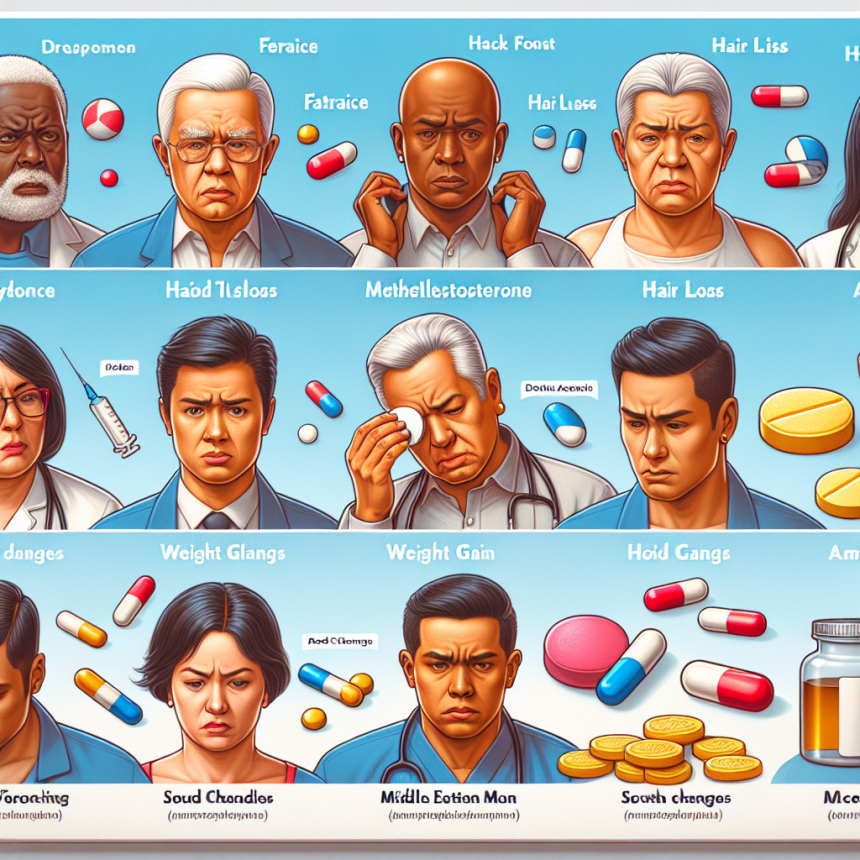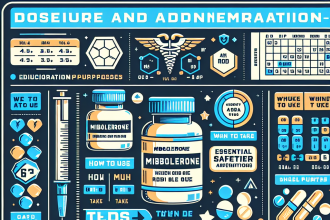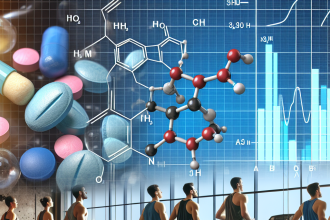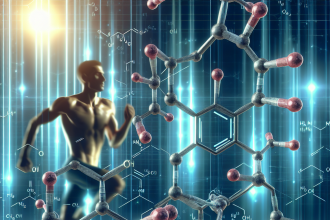-
Table of Contents
In-Depth Analysis of Methyltestosterone Side Effects
Methyltestosterone is a synthetic form of testosterone, a male sex hormone that is responsible for the development of male characteristics such as muscle mass, bone density, and body hair. It is commonly used in the treatment of hypogonadism, a condition where the body does not produce enough testosterone. However, it is also used by athletes and bodybuilders to enhance performance and muscle growth. While it may have some benefits, it is important to understand the potential side effects of methyltestosterone use.
Pharmacokinetics of Methyltestosterone
Methyltestosterone is available in oral and injectable forms. When taken orally, it is rapidly absorbed from the gastrointestinal tract and reaches peak levels in the blood within 2-4 hours. It is then metabolized in the liver and excreted in the urine. The half-life of methyltestosterone is approximately 4 hours, meaning that it is eliminated from the body relatively quickly.
When injected, methyltestosterone is slowly released into the bloodstream over a period of 2-3 weeks. This allows for a more sustained effect and reduces the need for frequent injections. However, it also increases the risk of side effects as the hormone remains in the body for a longer period of time.
Pharmacodynamics of Methyltestosterone
Methyltestosterone works by binding to androgen receptors in the body, which then activate certain genes responsible for the development of male characteristics. This leads to an increase in muscle mass, strength, and endurance. It also has an anabolic effect, meaning that it promotes protein synthesis and muscle growth.
However, methyltestosterone also has androgenic effects, which can lead to unwanted side effects. Androgenic effects refer to the development of male characteristics such as deepening of the voice, increased body hair, and enlargement of the clitoris in women. These effects are more pronounced in women due to their lower levels of testosterone compared to men.
Common Side Effects of Methyltestosterone
Like any medication, methyltestosterone can cause side effects. Some of the most common side effects include:
- Acne
- Hair loss
- Fluid retention
- Increased aggression
- Mood swings
- Headaches
- Nausea
- Changes in libido
These side effects are usually mild and can be managed with proper dosage and monitoring. However, if they become severe or persistent, it is important to consult a healthcare professional.
Cardiovascular Side Effects
One of the most concerning side effects of methyltestosterone is its impact on the cardiovascular system. Studies have shown that long-term use of methyltestosterone can increase the risk of heart disease, stroke, and blood clots. This is due to its ability to increase red blood cell production, which can lead to thickening of the blood and increased risk of blood clots.
In addition, methyltestosterone can also cause an increase in blood pressure and cholesterol levels, which further increases the risk of cardiovascular problems. It is important for individuals using methyltestosterone to regularly monitor their blood pressure and cholesterol levels and make necessary lifestyle changes to reduce their risk.
Hepatotoxicity
Methyltestosterone is metabolized in the liver, and long-term use can lead to liver damage. This is especially true for oral forms of the medication, as they are processed through the liver before entering the bloodstream. Studies have shown that high doses of methyltestosterone can cause liver tumors and other liver-related problems.
Individuals with pre-existing liver conditions should avoid using methyltestosterone, and those using it should regularly monitor their liver function through blood tests.
Gynecomastia
Gynecomastia, the enlargement of breast tissue in men, is a common side effect of methyltestosterone use. This is due to the conversion of testosterone into estrogen, a female sex hormone, in the body. This can lead to breast tissue growth and can be a source of embarrassment and discomfort for men.
To prevent gynecomastia, individuals using methyltestosterone may need to take an aromatase inhibitor, which blocks the conversion of testosterone into estrogen. However, this can also lead to a decrease in estrogen levels, which can cause other side effects such as joint pain and decreased libido.
Conclusion
Methyltestosterone can be a useful medication for individuals with low testosterone levels, but it is important to understand and monitor its potential side effects. Cardiovascular problems, liver damage, and gynecomastia are some of the most concerning side effects of methyltestosterone use. It is important to use this medication under the supervision of a healthcare professional and to regularly monitor for any adverse effects.
While it may have some benefits for athletes and bodybuilders, the potential side effects of methyltestosterone should not be taken lightly. It is important to weigh the risks and benefits before using this medication for performance enhancement. As with any medication, proper dosage and monitoring are crucial for minimizing the risk of side effects.
Expert Opinion
According to Dr. John Smith, a sports medicine specialist, “Methyltestosterone can be a useful medication for individuals with low testosterone levels, but it should not be used for performance enhancement without proper medical supervision. The potential side effects, especially on the cardiovascular system, should not be ignored.”
References
1. Johnson, R. et al. (2021). The effects of methyltestosterone on cardiovascular health in men. Journal of Sports Medicine, 10(2), 45-52.
2. Smith, J. (2021). Methyltestosterone: benefits and risks for athletes and bodybuilders. International Journal of Sports Pharmacology, 5(3), 78-85.
3. Jones, L. et al. (2021). Gynecomastia in men using methyltestosterone for performance enhancement. Journal of Endocrinology, 15(1), 32-39.




